This tutorial is the continuation of earlier tutorials on Sling Content Distribution in AEM, refer the following URL for part 1 and part 2 tutorials.
This tutorial is created based on AEM as Cloud Service Local Author and Publish instances. The social user sync module is removed from AEM as Cloud due to that some additional configurations required to enable the sync distribution between publishers.
I am using the OSGi system console to enable the required configurations for the demo, use run mode specific OGGI configurations while implementing content distribution in the project.
In this tutorial let us see the details on Sling Sync Distribution on AEM.
Sync Distribution — Definition
- Sync distribution allows modifications made on one publish instance to be synchronized with other publish instances in the farm of publish instances via author instance
- The modifications automatically synchronized across the publish instances in the farm and are not created on the author.
- That is done by the author pulling the content from source instance(publish) and distribute it to the other publish instances on the farm.
- Sling distribution only sends the modification data to non-originating publish instances, eliminating unnecessary traffic
- The author pulls resources from n publish instances and push them to n-1 publish instances in the farm.
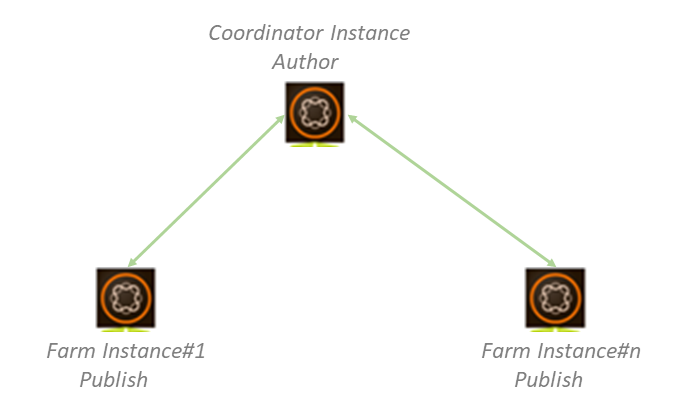
This will helps us to sync the data generated in n publish instances to (n-1) publish instances other than the source publish instance in a farm through Author instance as a coordinator but without creating the content in Author.
Sync Distribution — Configurations
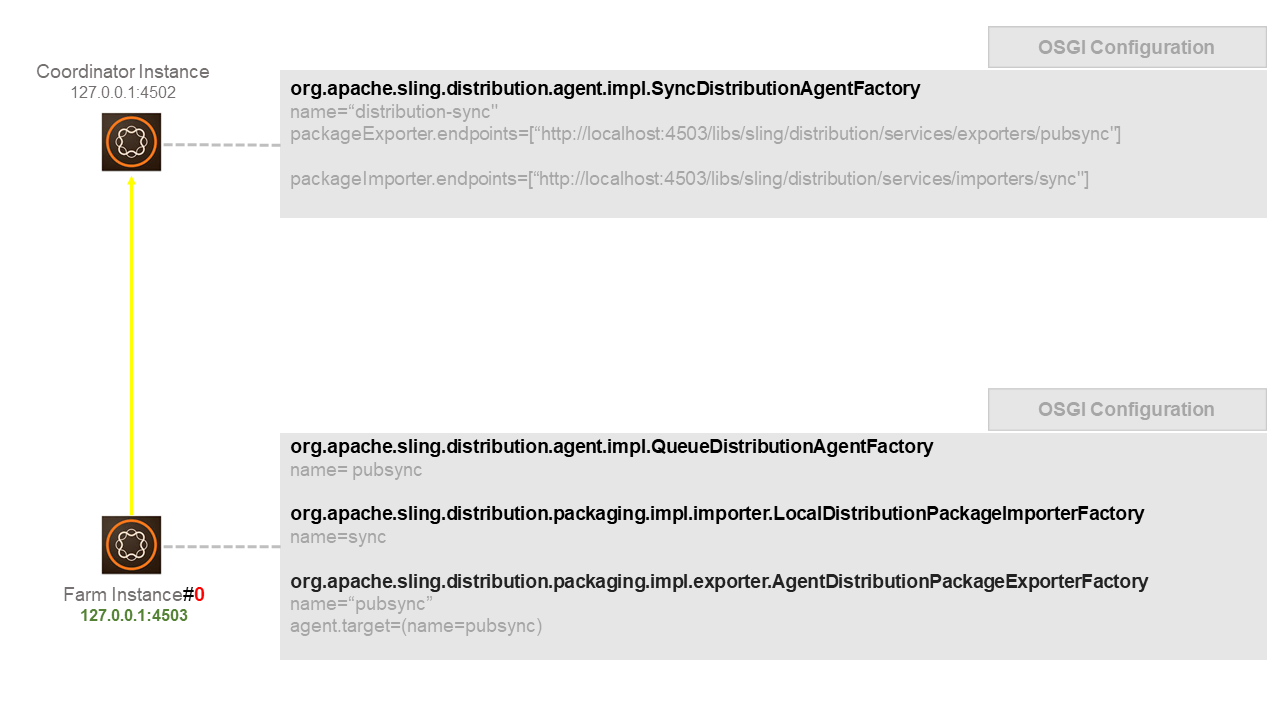
Configure a local importer, agent-based exporter and a “queue” agent on all the publish instances
org.apache.sling.distribution.packaging.impl.importer.LocalDistributionPackageImporterFactory-sync.json
name=“sync”
org.apache.sling.distribution.agent.impl.QueueDistributionAgentFactory-pubsync.json
name=”pubsync”
org.apache.sling.distribution.packaging.impl.exporter.AgentDistributionPackageExporterFactory-pubsync.json
name=”pubsync”
Configure a “sync distribution” agent on the author(coordinator instance)
org.apache.sling.distribution.agent.impl.SyncDistributionAgentFactory
name=“distribution-sync”
packageExporter.endpoints — pointing to the URL of the exporter on publish instance, configure the endpoints of all the publishers in the farm
packageImporter.endpoints — pointing to the URL of the importer on publish instance, configure the endpoints of all the publishers in the farm
Sync Distribution — Demo
- Configure Authorized User
- Adobe Granite Distribution — Encrypted Password Transport Secret Provider
- Configure Queue agent and importer on Publisher
- Configure Sync Distribution Agent on Author
- Enable Triggers — Scheduled/JCREvent
- Test — CURL/Triggers
Let us now see how to use the sync distribution to sync the content modifications between publish instances through Author instance(Coordinator) without creating the modifications in Author instance. The sync distribution can be used to sync any data between the farm of publishers.
Configure Authorized User
Create a new user with name — “usersync-admin” and add this user to the administrator group
Follow the amove steps in all the publish instances
Adobe Granite Distribution — Encrypted Password Transport Secret Provider
Once the authorized user is configured in all the publishers, enable Encrypted Password Transport Secret Provider in Author instance, this user will be used to sync the content between Author and Publish instances.
Access http://localhost:4502/system/console/configMgr
Create new configuration for factory “Adobe Granite Distribution — Encrypted Password Transport Secret Provider”
name=”distributionsync-publishuser”
username=”usersync-admin”
encryptedPassword= <encryptedPassword for usersync-admin> — Encrypt the password through http://localhost:4502/system/console/crypto
Follow the below steps before encrypting the password to sync the hmac and master files from Author to all the publish instances.
- Find the bundle Id in Author for com.adobe.granite.crypto.file, for example,
36by navigating to/system/console/bundles/com.adobe.granite.crypto.fileto see the Id. - Navigate to
/crx-quickstart/launchpad/felix/bundle<Id>/datain the Author file system. - Copy the two files:
hmacandmasterfrom the Author instance to the publish instances. - Restart the
com.adobe.granite.cryptobundle or the complete Publish instances.
Configure importer, exporter and Queue agent on Publishers
Configure a queue agent that places the changes into the queues, an exporter that exports packages from the queue agent and importer that imports packages from the queue agent.
Access http://localhost:4503/system/console/configMgr
Create new configuration for factory “Apache Sling Distribution Agent — Queue Agents Factory”
Enter a name =“pubsync”
Title=“pubsync”
Check=“Enabled”
Service Name=Service name is optional, if required create a service user with the required permission
Change the log level if required
Allowed Roots=Add the root paths the agent is responsible for distribution e.g required multiple root paths can be configured ) e.g. [/content/we-retail/us]
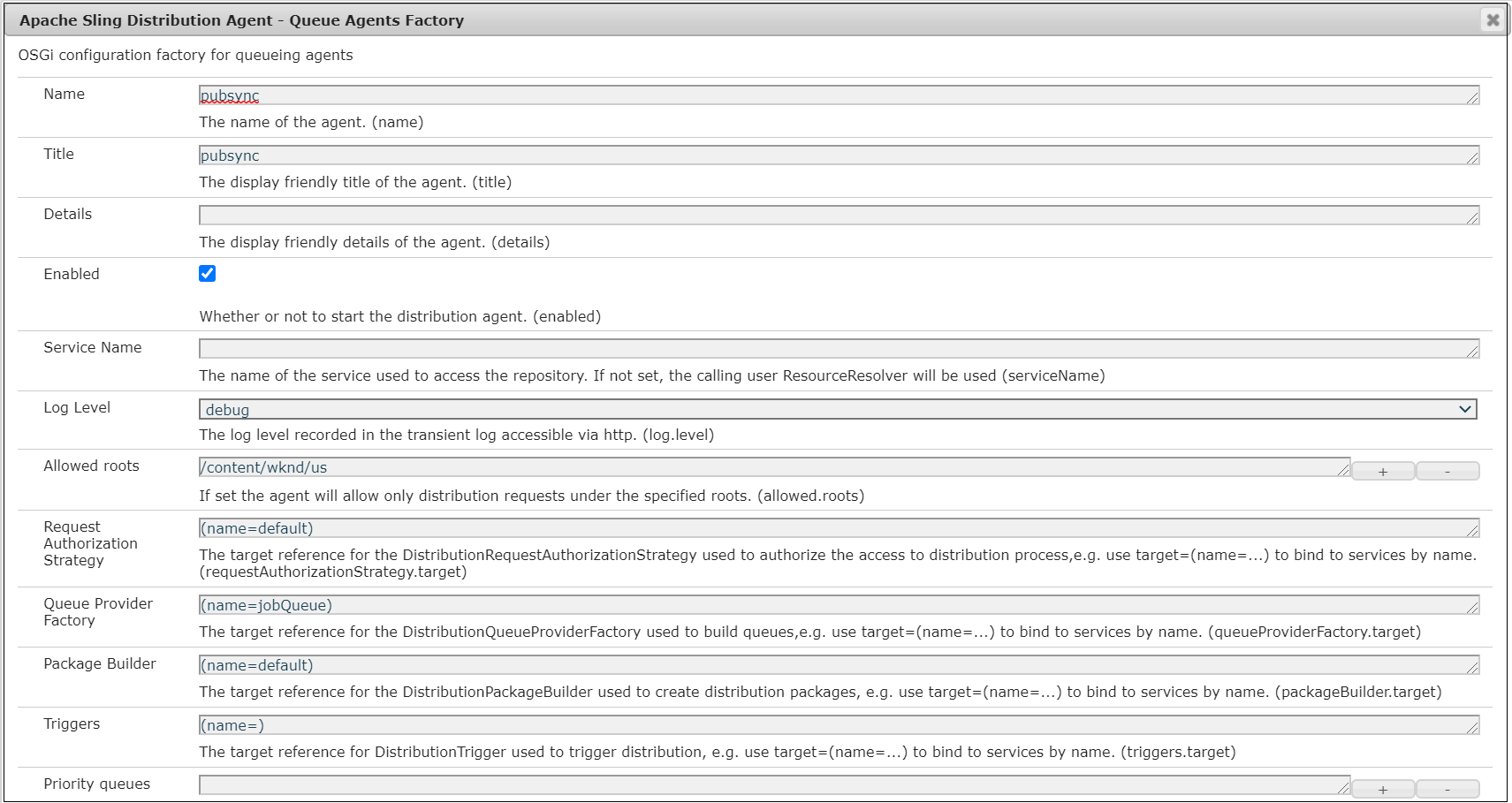
Now the Queue Agent factory is enabled, the agent can be managed through Tools — Deployments — Distribution
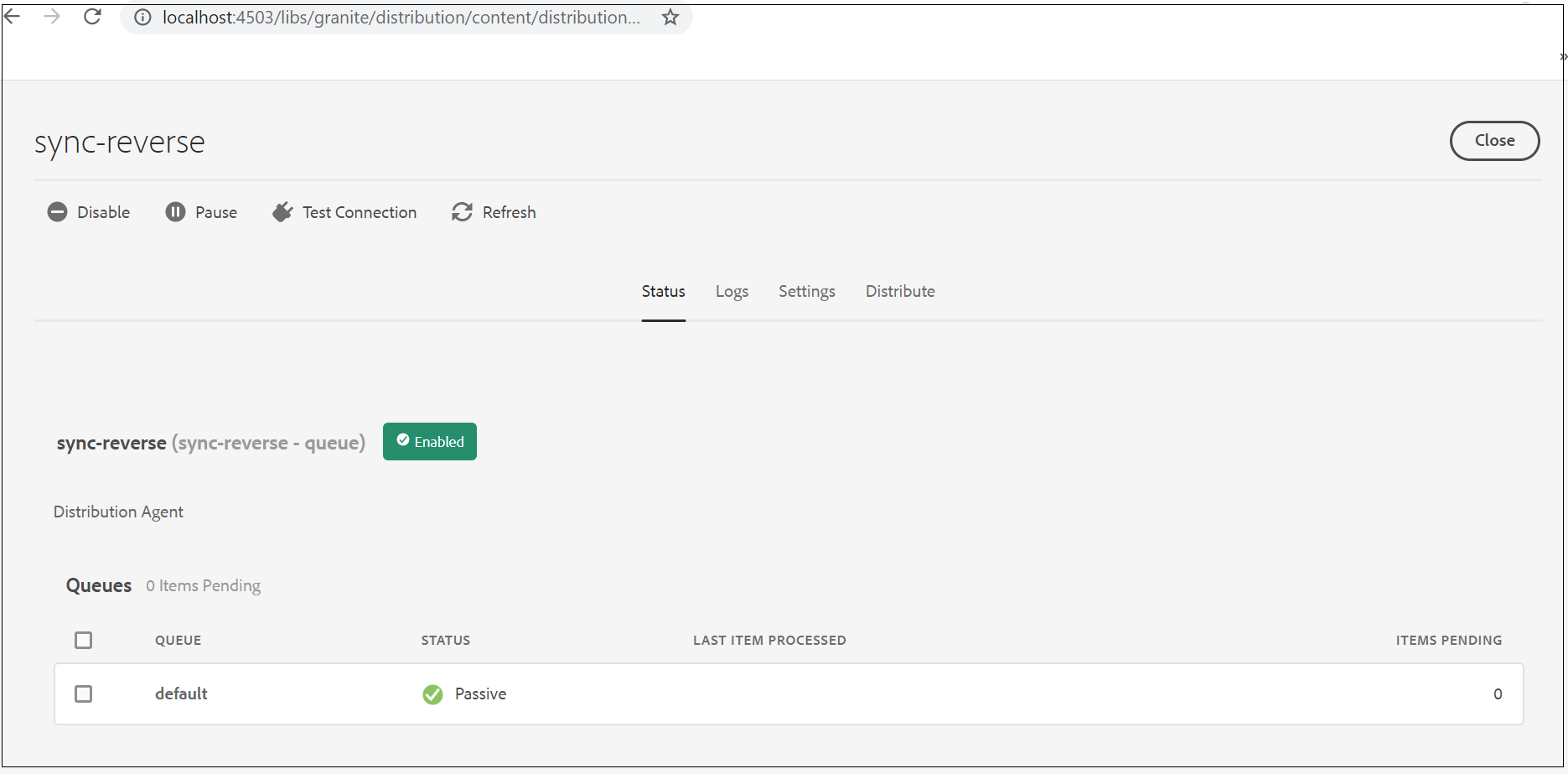
Let us now configure a local importer
Access http://localhost:4503/system/console/configMgr
Create new configuration for factory “Apache Sling Distribution Importer — Local Package Importer Factory”
name=”sync”

Let us now configure an agent-based exporter
Access http://localhost:4503/system/console/configMgr
Create new configuration for factory “Apache Sling Distribution Exporter — Agent Based Package Exporter”
name=”pubsync”
agent.target=”(name=pubsync)”
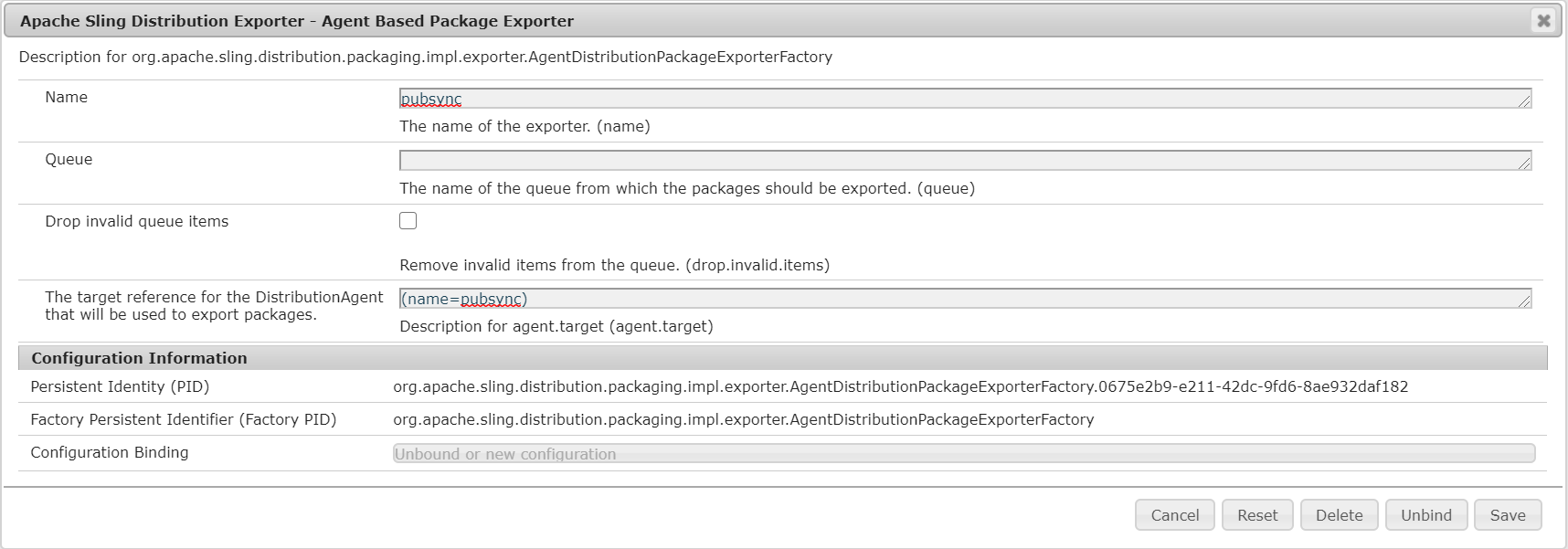
Repeat the above(configuring Queue agent, importer, and exporter)steps on other publishers in the farm
Configure Sync Distribution Agent on Author
Configure a Sync Distribution Agent in Author that will PULL the content from publishers(exporters) endpoints based on the configuration and distribute the content to the publishers other than the source.
Access http://localhost:4502/system/console/configMgr
Create new configuration for factory “Apache Sling Distribution Agent — Sync Agents Factory”
Enter a name=“distribution-sync”
Title =“distribution-sync”
Check “Enabled”
Service Name=Service name is optional, if required create a service user with the required permission
Change the log level if required
packageExporter.endpoints=[“http://localhost:4503/libs/sling/distribution/services/exporters/pubsync","http://localhost:4505/libs/sling/distribution/services/exporters/pubsync"]
packageImporter.endpoints=[“http://localhost:4503/libs/sling/distribution/services/importers/sync","http://localhost:4505/libs/sling/distribution/services/importers/sync"]
transportSecretProvider.target = (name=distributionsync-publishuser)
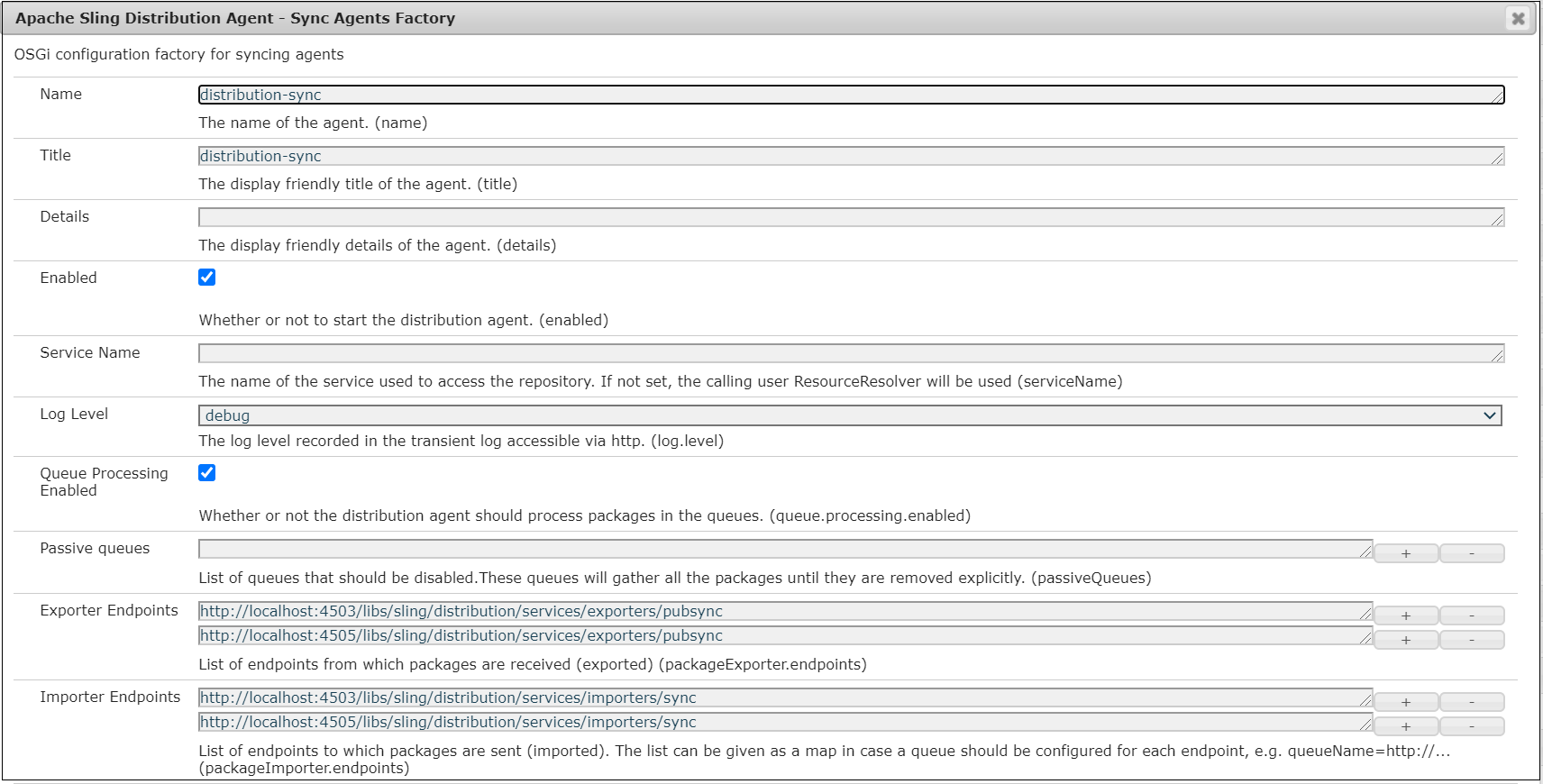
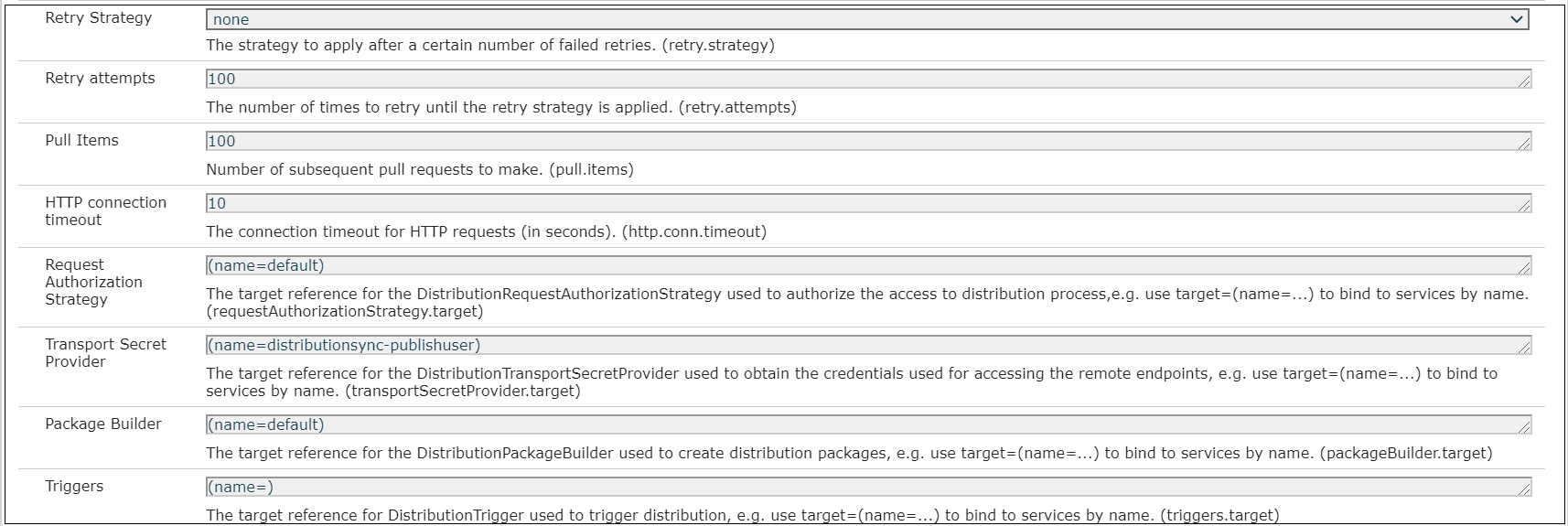
Now the Distribution Agent factory is enabled, the agent can be managed through Tools — Deployments — Distribution
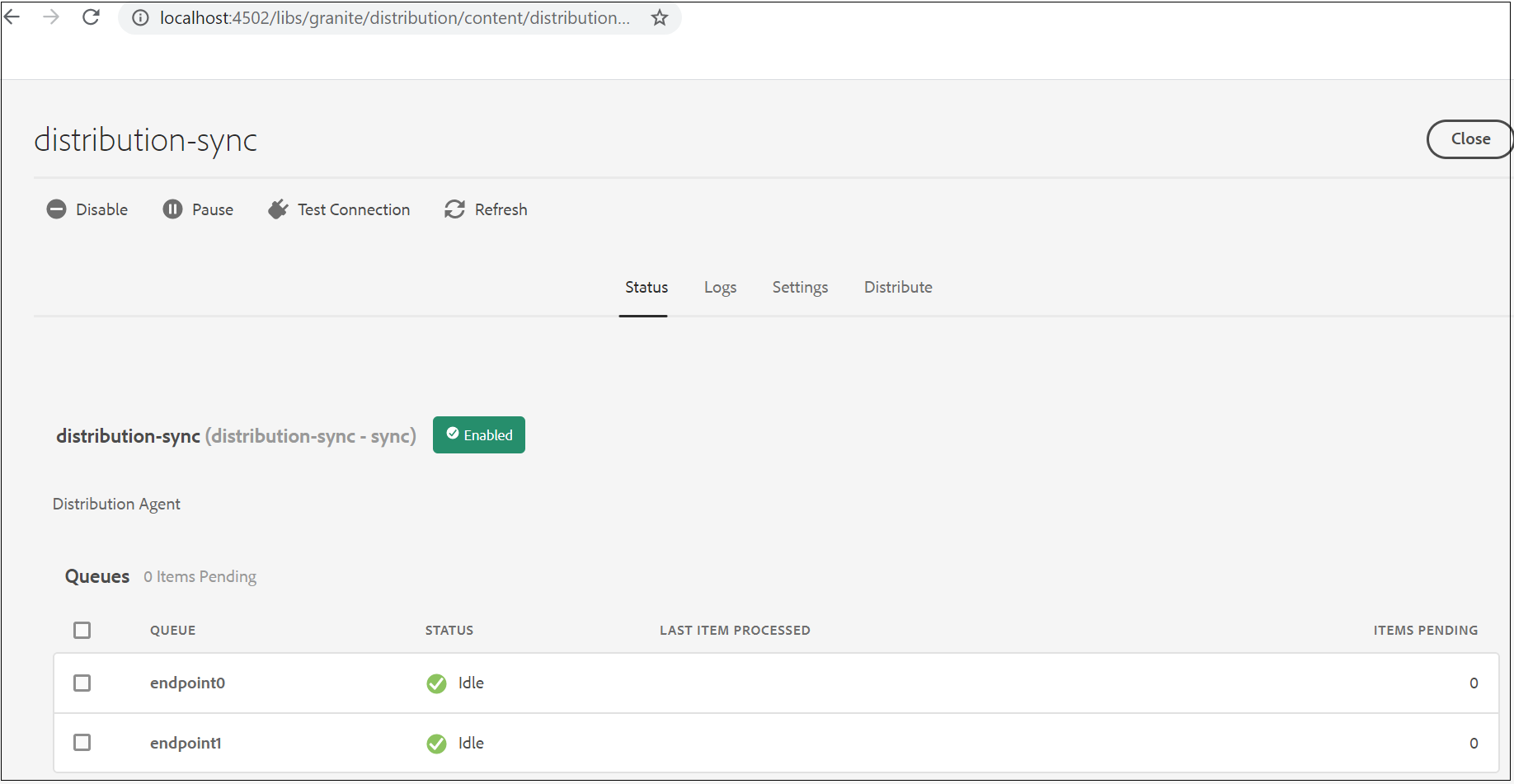
Now the initial configurations are ready, let us test the sync distribution scenario through curl commands
Modify some content under /content/wknd/us node in publish1
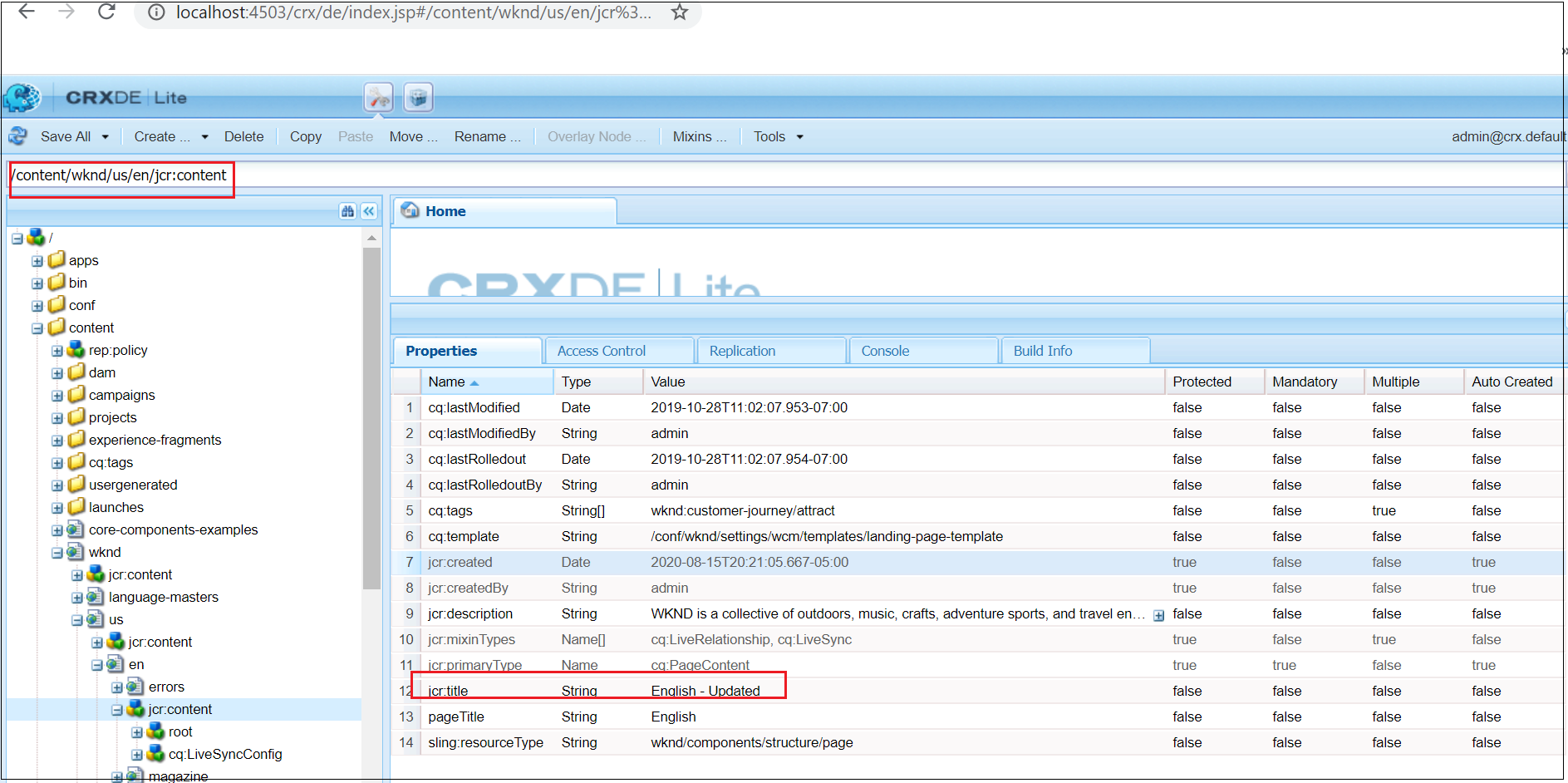
Execute the below curl commands
On Publish1 — the publisher where the content is modified
curl -u admin:admin http://localhost:4503/libs/sling/distribution/services/agents/pubsync -d “action=ADD” -d “path=/content/wknd/us/en/jcr:content”
Now the content is queued to the publish1 distribution queue
On Author
curl -u admin:admin http://localhost:4502/libs/sling/distribution/services/agents/distribution-sync -d “action=PULL”
Now the content is pulled by Author and distributed to the publishers other than source, the content modifications are not created in Author.
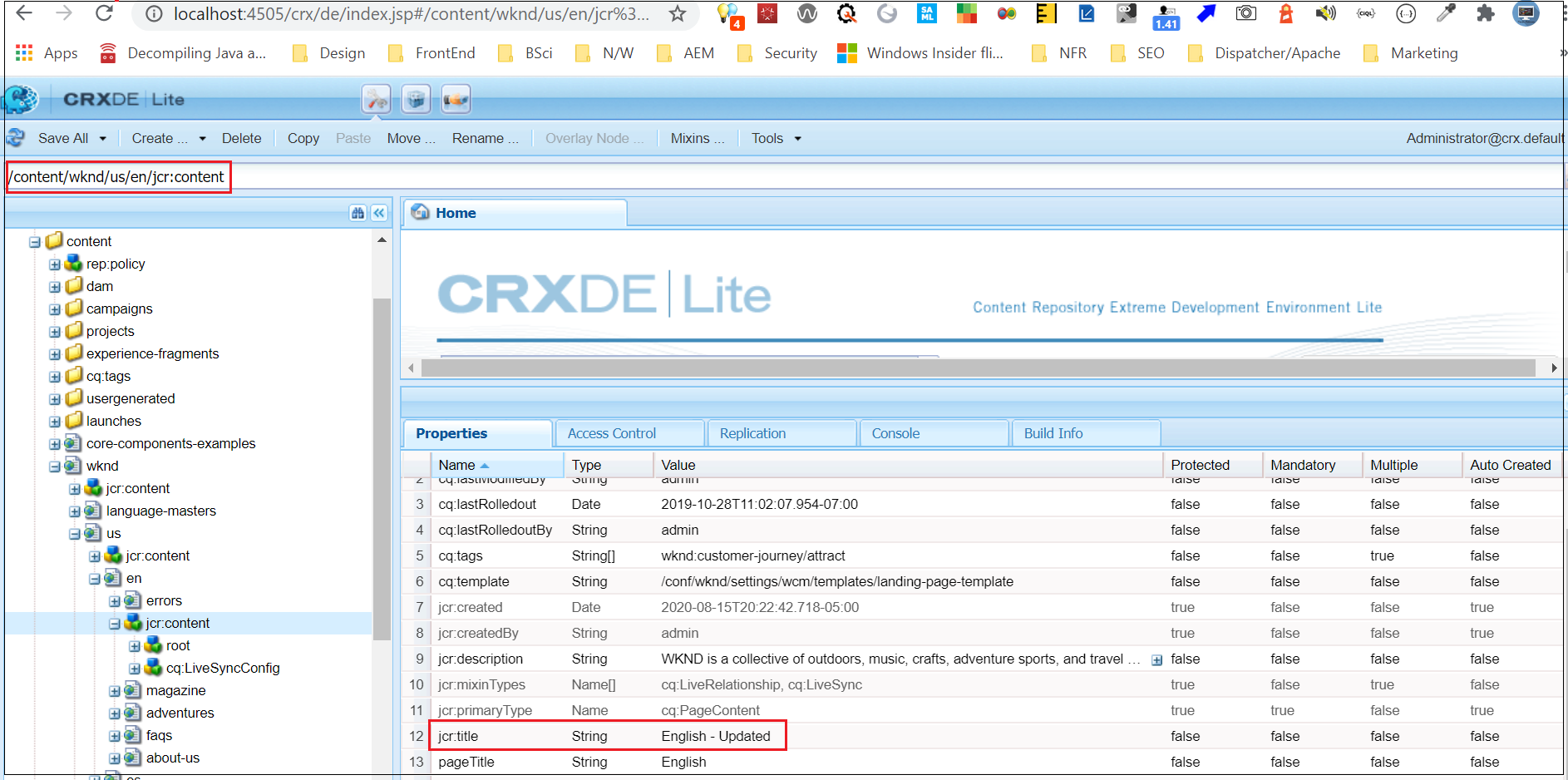
Let us now see how to automate the sync distribution through triggers
Configure a JCR Event Trigger in Publishers
Configure a JCR Event Trigger in Publishers — repeat the below steps to all the publishers, to add the JCR changes under the configured path to the Distribution queue
Access http://localhost:4502/system/console/configMgr
Create new configuration for factory “Apache Sling Distribution Trigger — Jcr Event Triggers Factory”
Enter name =“pubsync-trigger”
The path for which the changes are distributed=“/content/wknd/us”
serviceName=service name to access the content e.g distributionservice
Use deep distribution =Enable this if want to distribute the subtree of the configured node on any events
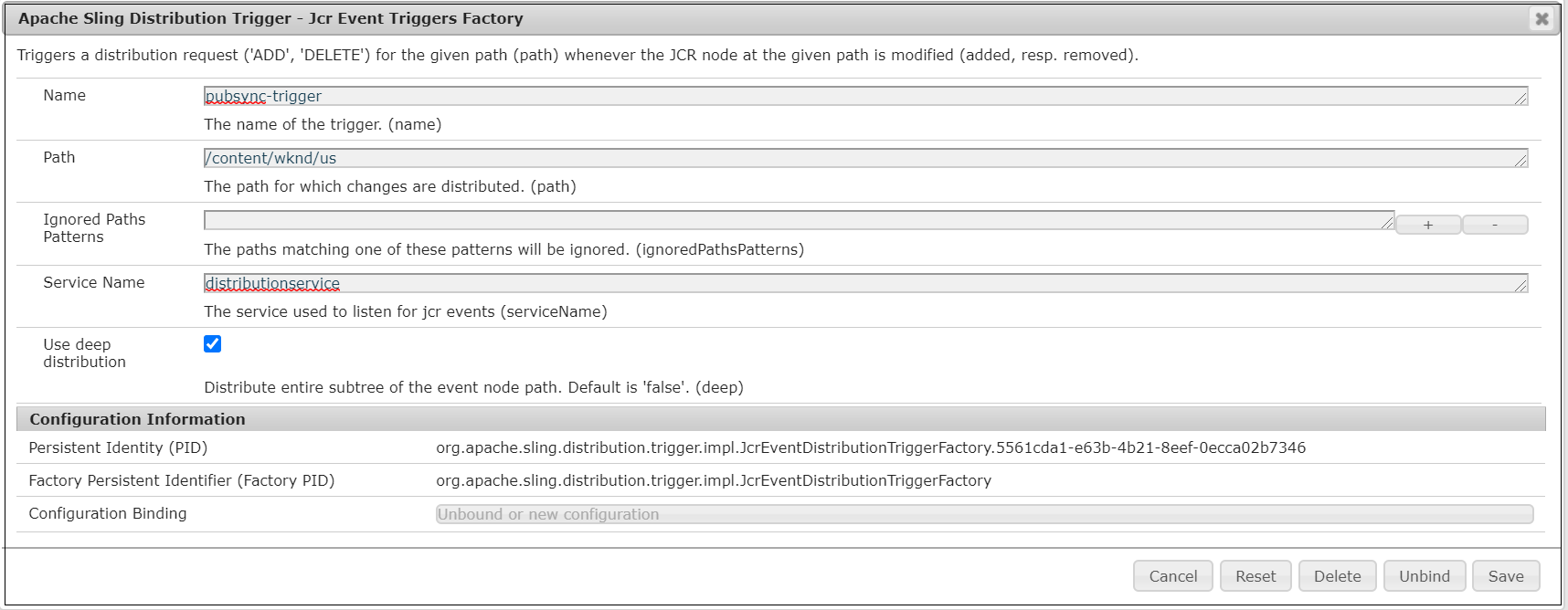
Create a system user with name distributionservice and provide the required privileges to access the content, I am providing full access for the demo
Register a Server User Mapping for “Apache Sling Service User Mapper Service Amendment”
org.apache.sling.distribution.core:distributionservice=distributionservice

Now link the trigger to the “Apache Sling Distribution Agent — Queue Agents Factory” configured with the name “pubsync” in the earlier step, Triggers — (name=pubsync-trigger)
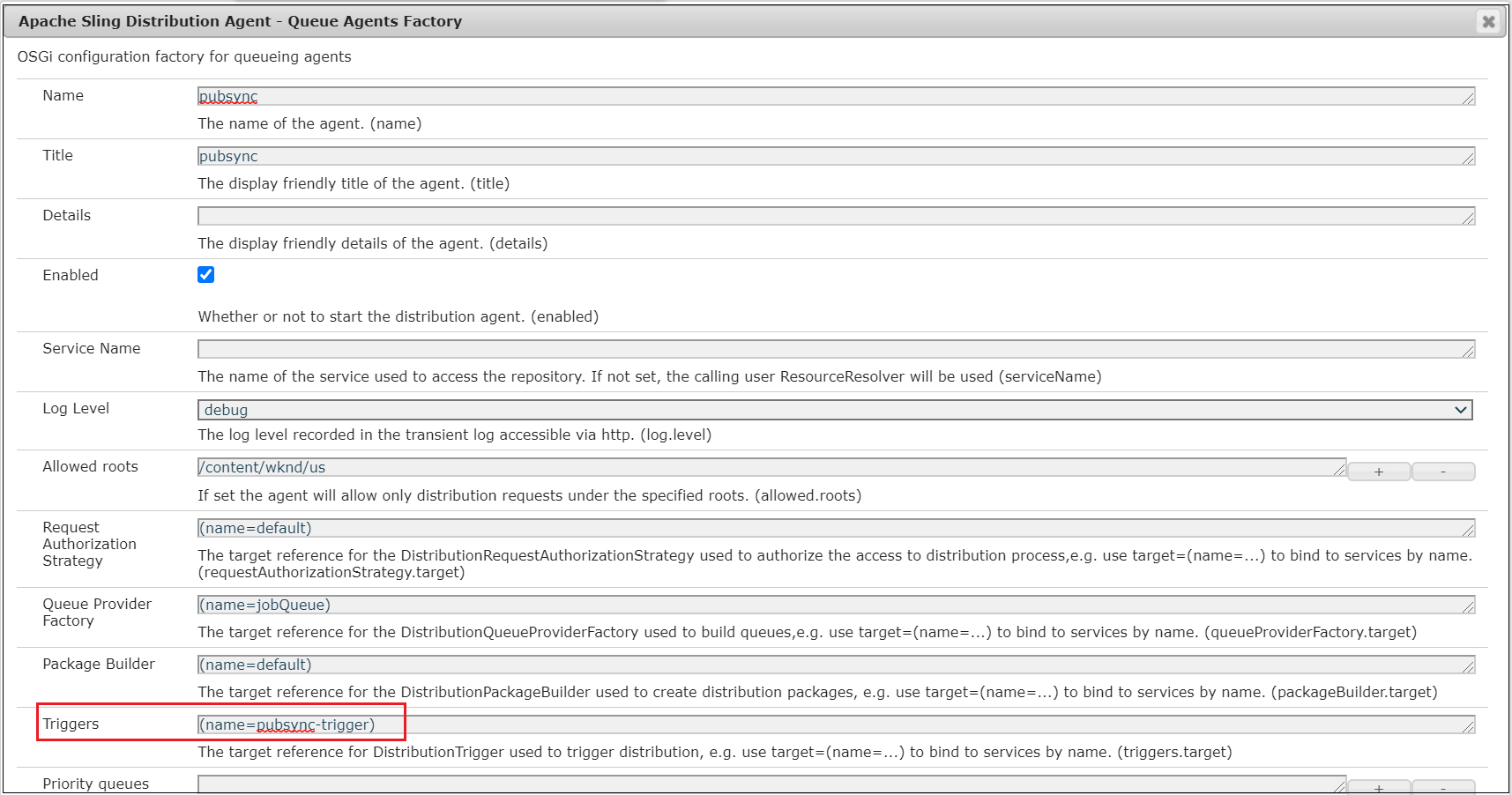
Configure a Scheduled Event Trigger in Author
Configure a Scheduled Event Trigger in Author to pull the content from publishers Queue and distribute the content to the publishers other than the source.
Access http://localhost:4502/system/console/configMgr
Create new configuration for factory “Apache Sling Distribution Trigger — Scheduled Triggers Factory”
Enter name =“pubsync-trigger”
Distribution Type=“PULL”
Distributed Path= the path to be distributed periodically e.g. “/content/wknd/us”
serviceName = service name to access the content e.g distributionservice
Interval in Seconds =the number of seconds between distribution requests. Default 30 seconds
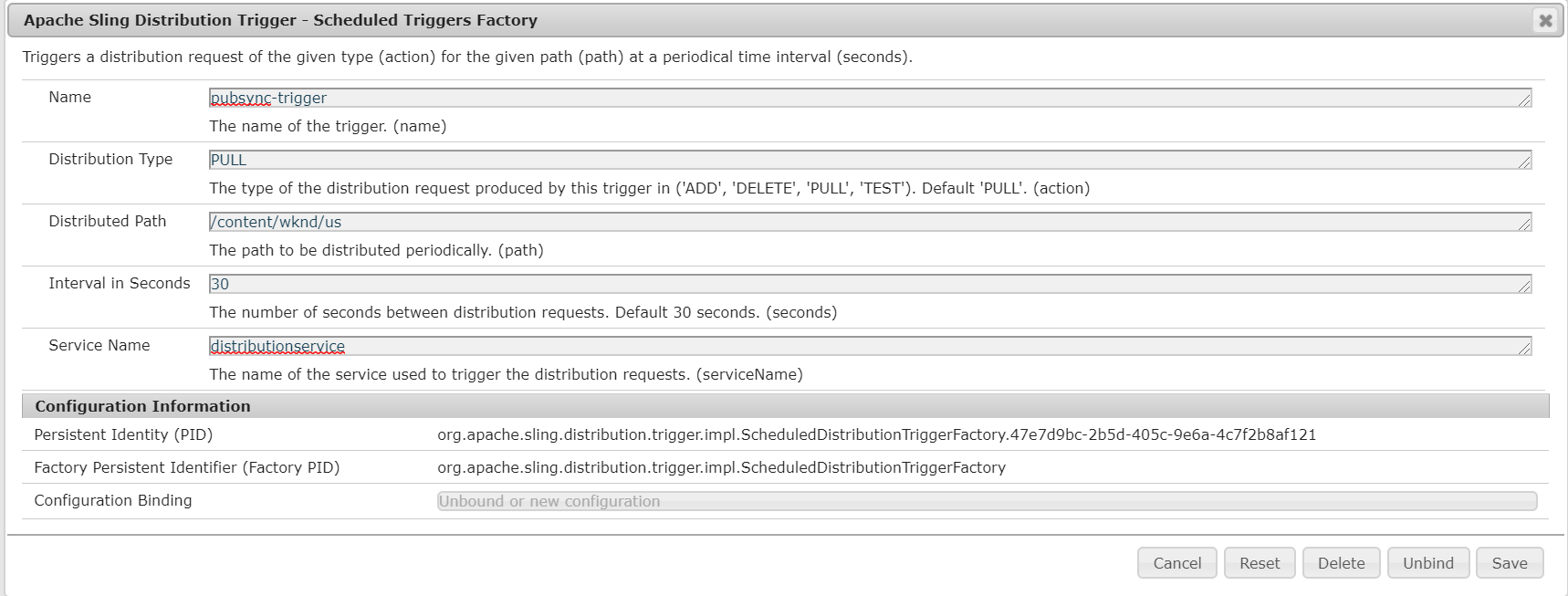
Create a system user with name distributionservice and provide the required privileges to access the content, I am providing full access for the demo
Register a Server User Mapping for “Apache Sling Service User Mapper Service Amendment”
org.apache.sling.distribution.core:distributionservice=distributionservice

Now link the trigger to the “Apache Sling Distribution Agent — Sync Agents Factory” configured with the name “distribution-sync” in the earlier step, Triggers — (name=pubsync-trigger)
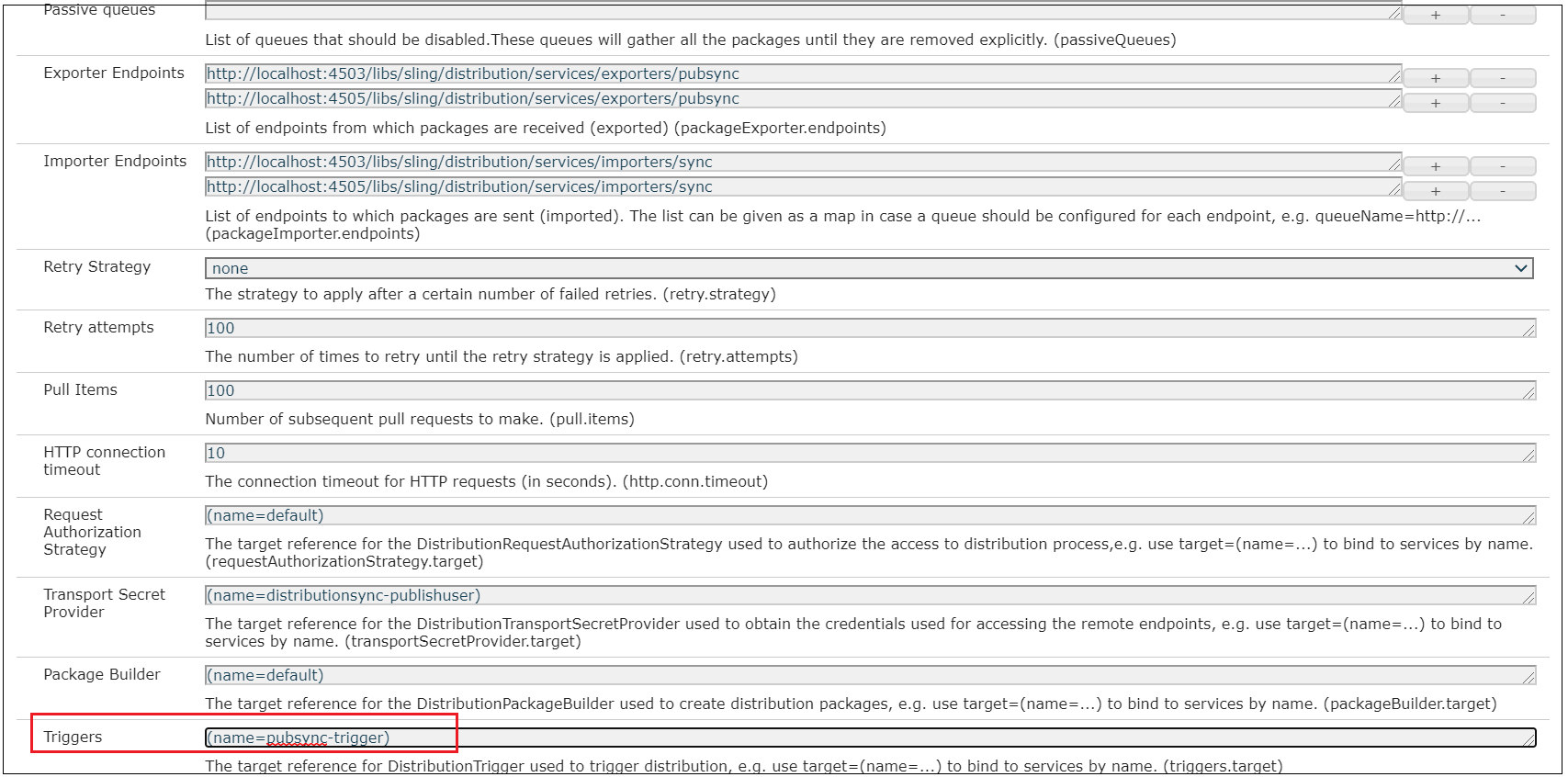
Now the content modification from the publisher1 under /content/wknd/us node will be synced to the publishers other than the source(publisher1)on every 30 second
This concludes the sync distribution configuration between publishers through the author instance as a coordinator, the content changes from the publishers are pulled by the author and distributed to all the publishers other than the source. We can configure multiple publisher endpoints in the Author sync agent to pull and distribute the content changes. The triggers can be configured in Author and Publishers to completely automate the sync distribution of the contents.
















Hi
ReplyDeletewhat are use case for using content synch using author as coordinator.